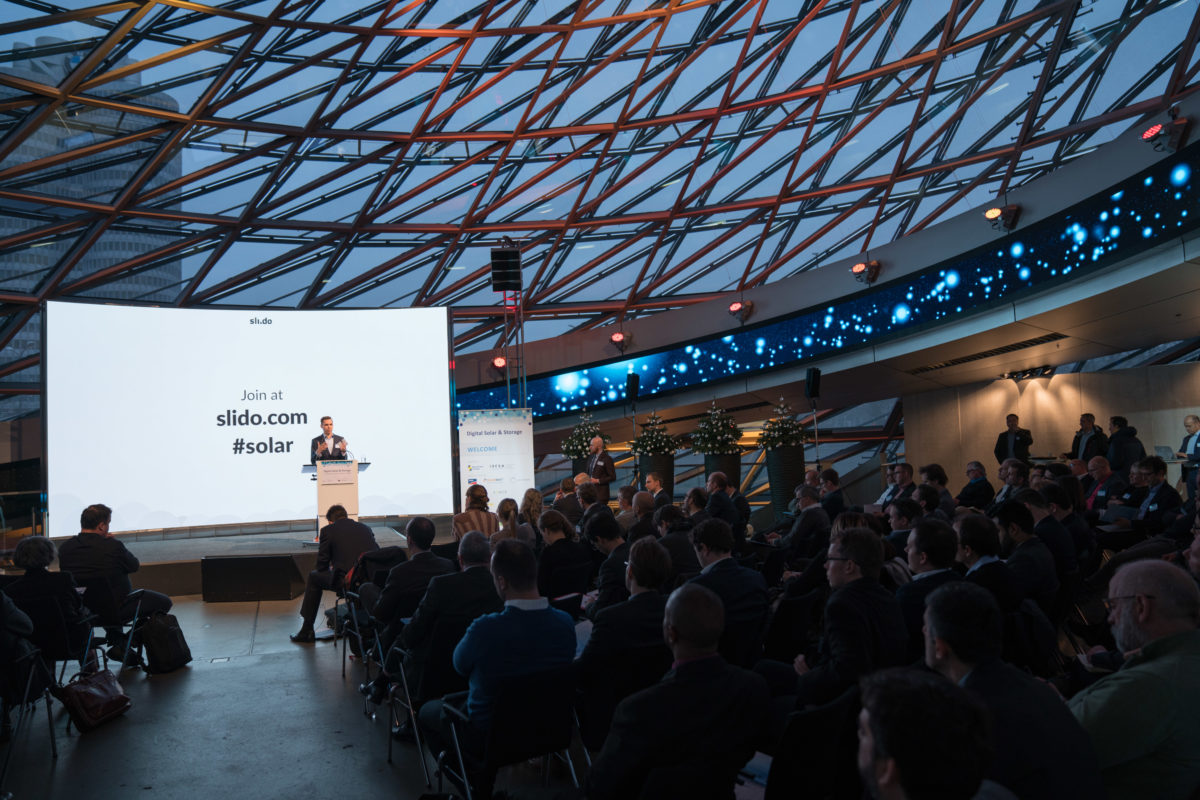A big dispute arose today in Germany's capital at the conference, Digital Solar & Storage, organized by European solar industry association, SolarPower Europe, and the International Battery & Energy Storage Alliance Ibesa.
The panelists discussed how different the strategies in the industry are, and where they are heading. On one side of the “Dinner Debate” sat Andreas Gutsch, Managing Director of Solarwatt Innovation, while on the other, sat Jean-Baptiste Cornefert, Managing Director of Sonnen E-Services, Sonnen’s subsidiary that provides electricity services products.
Both are battery system manufacturers, with Sonnen E-Services focused on services, and Solarwatt specializing in hardware. It is well known that Sonnen claims electricity services could increase the independence of traditional utilities. Andreas Gutsch from Solarwatt does not agree with this. The main driver for consumers buying a storage system is independence, he states. If electricity services were to attract too much attention, this feeling could be partially lost.
SolarPower Europe believes these issues must be adressed now, because solar energy can benefit significantly through digitization in the energy system. Solarpower Europe president, Christian Westermeier, who is also VP at Wacker Chemie, said, “If you combine that with storage, you can compensate for the volatility of solar energy significantly.”
In addition, the downstream sector opens many opportunities. Westermeier sees the dispute between hardware and software in a more conciliatory way. Production can also have success in Europe, if it is innovative.
A Task Force for SolarPower Europe has just launched a study on digitization. The topic remains relevant, “especially because we see that the EU Commission strongly supports us in this regard,” said Westermeier.
The field is dynamic. SMA, which was long known as a hardware-focused company, is now moving towards the power services business. The inverter manufacturer has recently created a subsidiary for Energy Services in Munich.
“We use the data and generate recommendations for customers,” said executive VP, Jochen Schneider on the podium. To do this, SMA uses a new platform called “ennex OS”, which unlike previous platforms, should be open and operating in the electricity market.
So, it is not about selling as much hardware as possible over services. The importance of services is demonstrated by the goal, which SMA CEO Pierre-Pascal Urbon already announced in the spring: that the company’s solution business should account for 40% of total revenue in 2020.
Michael Schmela, the panel’s moderator concluded: “They [ hardware and services] come from different sides and move in the same direction.”
The event, which attracted 200 participants, according to SolarPower Europe, is expected to take place again next year.
This content is protected by copyright and may not be reused. If you want to cooperate with us and would like to reuse some of our content, please contact: editors@pv-magazine.com.



By submitting this form you agree to pv magazine using your data for the purposes of publishing your comment.
Your personal data will only be disclosed or otherwise transmitted to third parties for the purposes of spam filtering or if this is necessary for technical maintenance of the website. Any other transfer to third parties will not take place unless this is justified on the basis of applicable data protection regulations or if pv magazine is legally obliged to do so.
You may revoke this consent at any time with effect for the future, in which case your personal data will be deleted immediately. Otherwise, your data will be deleted if pv magazine has processed your request or the purpose of data storage is fulfilled.
Further information on data privacy can be found in our Data Protection Policy.